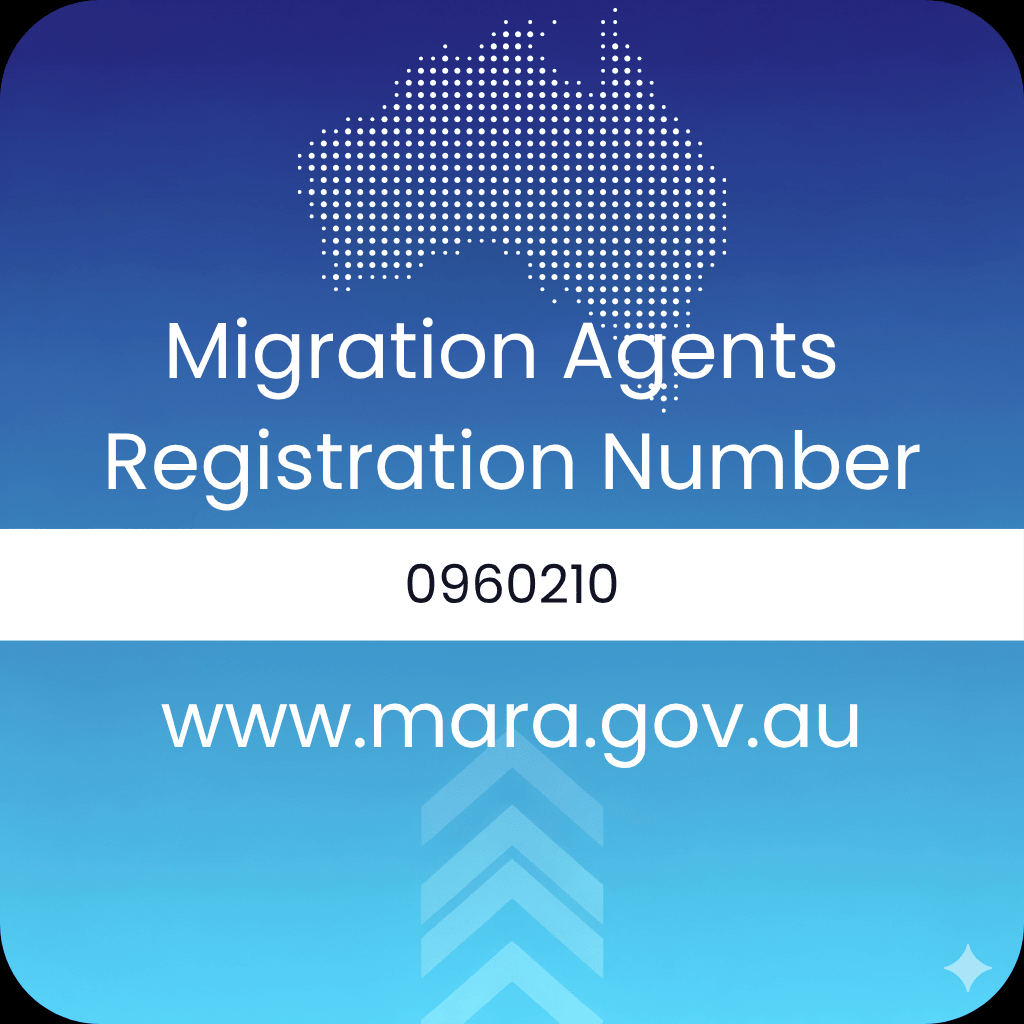As a Registered Migration Agent, it’s not uncommon to encounter unique terms clients use to describe their aspirations for Australia. While the idea of a “Biryani Visa” might spark culinary delight, it’s important to clarify from the outset: there is no official Australian visa subclass by this name. The Australian Department of Home Affairs (DHA) maintains a comprehensive list of visa subclasses, each with specific criteria and purposes, but “Biryani Visa” is not among them.
However, if your ambition is to bring your culinary expertise to Australia, whether as a skilled chef, a talented cook, or an aspiring restaurateur specializing in delicious cuisine like biryani, there are indeed legitimate and well-defined visa pathways available. This article will guide you through the real opportunities for culinary professionals and business owners looking to establish themselves in Australia’s vibrant food scene.
Target Audience: Culinary professionals (chefs, cooks) and aspiring restaurant owners interested in migrating to Australia.
Main Goal of the Post: To correct the misunderstanding of “Biryani Visa” and provide accurate information on legitimate Australian visa pathways for individuals in the culinary industry or those looking to establish a food-related business, emphasizing the need for professional advice.
Keywords: Australian chef visa, skilled migration chef Australia, restaurant owner visa Australia, TSS visa chef, ENS visa chef, skilled occupation list cook, business visa restaurant Australia, migration agent Australia.
—
Understanding Australia’s Approach to Skilled Migration
Australia’s immigration program is designed to attract individuals who can contribute to the nation’s economy and fill skill shortages. The hospitality sector, particularly the culinary arts, frequently experiences such shortages, making skilled chefs and sometimes cooks highly sought-after.
The key to navigating Australian immigration is to identify the correct visa subclass that aligns with your skills, experience, and migration goals. Let’s explore some of the most relevant options for those in the culinary field.

—
Visa Pathways for Chefs and Cooks
For culinary professionals, particularly “Chefs” (ANZSCO 351311), several pathways can lead to temporary or even permanent residency in Australia. “Cooks” (ANZSCO 351411) also have options, though sometimes with different conditions.
#### 1. Employer-Sponsored Visas: Your Culinary Career in Australia
These visas require an Australian employer to sponsor you for a position. They are often the most direct route for skilled culinary professionals.
- Temporary Skill Shortage (TSS) Visa (Subclass 482)
This visa allows Australian employers to sponsor skilled overseas workers to fill nominated positions.
- For Chefs (ANZSCO 351311): Chefs are typically eligible for the Medium-Term stream of the Subclass 482 visa, which can provide a pathway to permanent residency. You generally need at least two years of full-time post-qualification work experience in your role as a chef. English language proficiency (e.g., IELTS overall 5.0 with no band less than 5.0 for the medium-term stream) is also required.
- For Cooks (ANZSCO 351411): Cooks are currently listed on the Short-Term Skilled Occupation List (STSOL) and may be eligible for the Short-Term stream of the Subclass 482 visa. This stream typically has more limited pathways to permanent residency, unless specific “grandfathering arrangements” apply.
- Employer Obligations: Your sponsoring employer must meet specific criteria, including demonstrating a genuine need for the position (Labour Market Testing), and offering a salary that meets the Australian market rate and the Temporary Skilled Migration Income Threshold (TSMIT). The position cannot be in a mass production factory setting or a “limited service restaurant” (e.g., fast food, fast casual, coffee shops with limited food).
- Employer Nomination Scheme (ENS) Visa (Subclass 186)
This is a permanent residency visa for skilled workers who are nominated by an Australian employer.
- Eligibility: Generally, applicants need to be under 45 years of age (unless exempt), have at least three years of relevant work experience, and a positive skills assessment.
- Streams:
- Temporary Residence Transition (TRT) Stream: If you have worked for your employer on a Subclass 457 or 482 visa for at least two to three years (depending on policy updates), you may be eligible for this stream.
- Direct Entry (DE) Stream: Requires a positive skills assessment by Trades Recognition Australia (TRA) and at least three years of relevant work experience.
- Labour Agreement Stream: For those working for an employer who is party to a labour agreement.
#### 2. General Skilled Migration (GSM) Visas: Independent Pathways
These points-tested visas do not require an employer sponsor but often demand a higher level of points, specific skills assessment, and English language proficiency.
- Skilled Independent Visa (Subclass 189)
This is a permanent visa for skilled workers who are not sponsored by an employer, state/territory, or family member.
- Key Requirements: You must have an occupation on the relevant skilled occupation list (MLTSSL), a suitable skills assessment, meet the points test (currently 65 points minimum, but higher scores often required for an invitation), be under 45 years of age, and have competent English.
- Process: You submit an Expression of Interest (EOI) via SkillSelect and, if invited, apply for the visa.
- Skilled Nominated Visa (Subclass 190)
This is a permanent visa for skilled workers nominated by an Australian state or territory government.
- Key Requirements: Similar to the 189 visa, but you need a nomination from a state or territory government and your occupation must be on their specific skilled occupation list. This nomination can add 5 points to your total.
- State-Specific Criteria: Each state and territory has its own nomination criteria, which can change. For example, some states may require you to be living and working in that state.
- Skilled Work Regional (Provisional) Visa (Subclass 491)
This is a provisional visa that allows skilled workers to live and work in regional Australia for five years. It can lead to a permanent visa (Subclass 191) after three years if certain conditions are met.
- Key Requirements: Requires nomination by a state or territory government or sponsorship by an eligible family member residing in a regional area. Similar points test, age, and English language requirements apply.
Skill Assessment for Culinary Professions: For most skilled visas, particularly for chefs, you will need a positive skills assessment from Trades Recognition Australia (TRA). This typically involves demonstrating relevant qualifications and work experience.
—
Opening Your Own Restaurant: Business Visas
If your vision extends beyond working as a chef to owning and operating a restaurant, you might consider Australia’s Business Innovation and Investment (Provisional) visa (Subclass 188).
- Business Innovation Stream (Subclass 188A): This visa is for business owners who want to establish, develop, and manage a new or existing business in Australia.
- Key Requirements: You must be nominated by an Australian state or territory government, be under 55 years of age (unless exempt by state/territory), meet a points test (currently 65 points), and have a successful business career. You would typically need to demonstrate ownership in a business with a certain turnover and have net personal and business assets that can be transferred to Australia.
- Pathway to Permanent Residency: This provisional visa can lead to the Business Innovation and Investment (Permanent) visa (Subclass 888) if you meet specific business and residency requirements after establishing your venture in Australia.

—
General Eligibility Requirements Across Visa Types
Regardless of the specific visa subclass, common eligibility criteria include:
- Age: Generally under 45 years for most skilled visas (with some exceptions for business visas or specific occupations).
- English Language Proficiency: Demonstrated through approved tests like IELTS, PTE, TOEFL iBT, or OET. The required score varies by visa.
- Health and Character: All applicants must meet Australia’s health and character requirements.
- Skills Assessment: A positive skills assessment from the relevant assessing authority (e.g., Trades Recognition Australia for chefs and cooks) is often mandatory.
- Points Test: For skilled migration visas (189, 190, 491), you must meet a minimum points score, which considers factors like age, English ability, work experience, and qualifications.
—
The Importance of Professional Migration Advice
The Australian immigration landscape is dynamic and complex. Visa requirements, eligible occupation lists, and state nomination criteria can change frequently. For instance, the Business Innovation and Investment visa program (BIIP) has seen significant changes, with refunds of visa application charges provided for those who wish to withdraw their BIIP application. Relying on outdated or incorrect information can have serious implications for your application.
As a Registered Migration Agent with Oz World Migration Consultants, I operate strictly under the Code of Conduct regulated by the Migration Agents Registration Authority (MARA). This code mandates that I provide honest, transparent, and accurate advice, prioritizing your best interests within legal and ethical boundaries. I will never make false promises or guarantee outcomes, as visa grants are at the discretion of the Department of Home Affairs.
Navigating skill assessments, Expression of Interest submissions, state nominations, and the intricate documentation process requires meticulous attention to detail and up-to-date knowledge. An experienced MARA-registered agent can assess your individual circumstances, identify the most suitable visa pathway, and guide you through every step of the application, maximizing your chances of a successful outcome.
—
Disclaimer & Contact Us
Please be advised that immigration laws and policies in Australia change frequently. The information provided in this blog post is for general informational purposes only and does not constitute professional legal advice. It is not a substitute for tailored advice from a Registered Migration Agent.
For an accurate assessment of your eligibility for an Australian visa, particularly if you are a culinary professional or aspire to open a restaurant, we strongly recommend seeking personalized professional advice.
Contact Oz World Migration Consultants today to discuss your Australian migration goals. Call us directly on +61401344718 or send an email to contact@oz-world.com.au.
—
SEO Metadata
Meta Description: No “Biryani Visa” exists in Australia. Discover legitimate pathways for chefs, cooks, and restaurant owners to migrate to Australia with expert MARA agent guidance.




